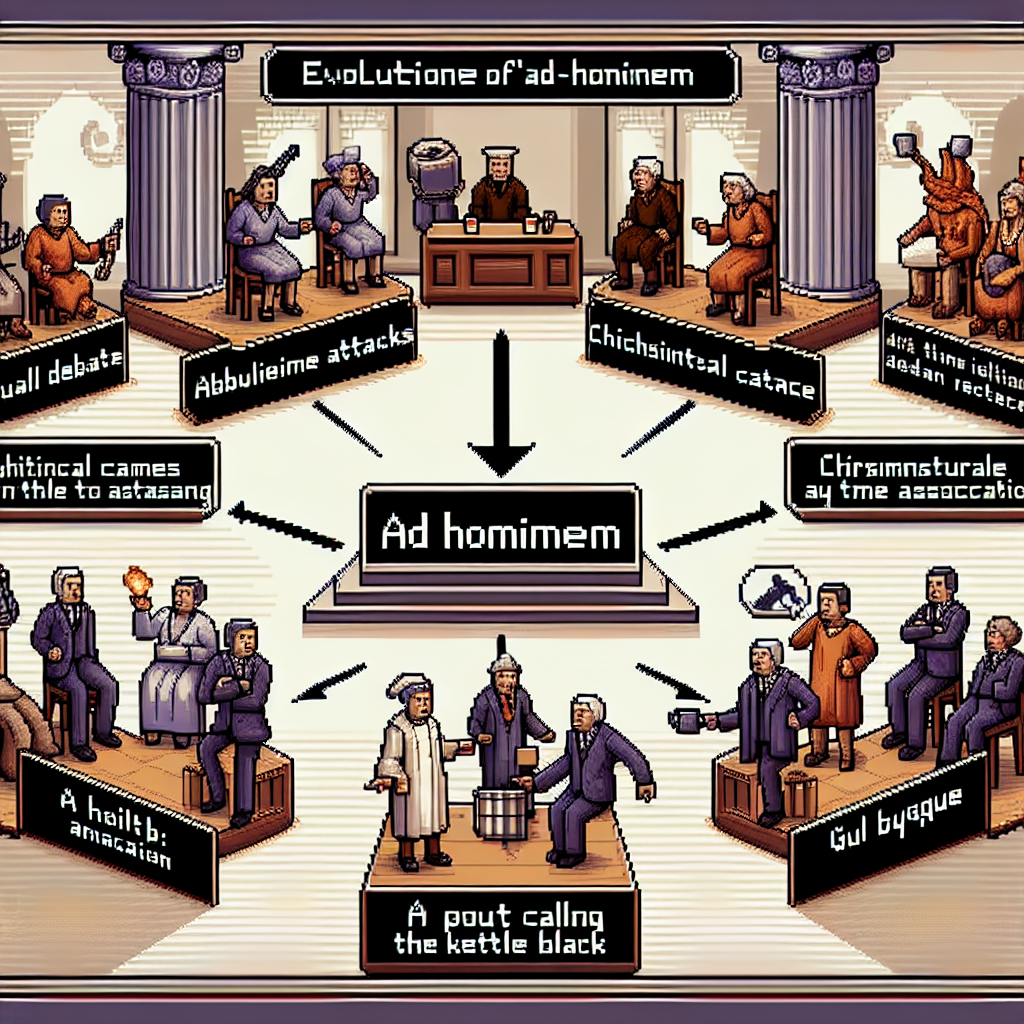Understanding Begging the Question
Definition of Begging the Question
Begging the Question is a logical fallacy where the conclusion of an argument is assumed in its premises, creating a circular reasoning that lacks independent support. This often leads to flawed arguments because the proof relies upon itself.
Importance of Understanding Logical Fallacies
Recognizing such fallacies is crucial, as it helps individuals identify weak arguments and improve their own reasoning skills. Logical fallacies can mislead audiences by obscuring the truth.
Relevance in Modern Discourse
In today’s fast-paced communication, the ability to dissect arguments is more important than ever. During discussions in media, politics, and daily interactions, understanding Begging the Question equips people to navigate conversations critically and build sound arguments. Despite the complexity of debates, being aware of this fallacy strengthens debate skills and decision-making.
Historical Background: Begging the Question
Origin of the Term
The term Begging the Question originated from the Latin phrase “petitio principii,” which translates to assuming the initial point. Initially, this logical fallacy was discussed in philosophical circles to highlight errors in reasoning. Over time, its usage has evolved and expanded beyond academic texts.
Evolution in Philosophical Contexts
During the early days of philosophical inquiry, Begging the Question served as a tool to critique arguments that assumed their conclusion without evidence. Philosophers like Aristotle identified it as a core issue in logical debates. Over centuries, thinkers adapted this understanding to reflect new contexts and complexities.
Notable Examples in History
Historically, instances of Begging the Question can be found in debates ranging from political to scientific discussions. Additional examples include medieval theological debates and Enlightenment-era philosophies. Such cases underline its long-standing role in shaping logical discourse.
Understanding Begging the Question
Explanation of Circular Reasoning
Begging the Question is a logical fallacy often seen in circular reasoning, where the conclusion is assumed in one of the premises. This type of argument doesn’t provide evidence for its conclusion, leading the audience in a circle without offering real proof.
Key Characteristics of the Fallacy
The key characteristic of Begging the Question is its reliance on an assumption that should be proven. During debates, this technique can mislead by relying on statements that have yet to be validated, creating an illusion of valid reasoning.
Differentiating from Related Fallacies
Despite similarities to other fallacies like a hasty generalization, it is crucial to differentiate them. Additionaly, unlike a straw man argument, which distorts the opposing stance, Begging the Question relies on the flawed premise itself. By understanding these nuances, one can better identify flawed arguments in discussions.
Begging the Question in Modern Media
Examples in Political Rhetoric
In today’s fast-paced world, political rhetoric often suffers from the logical fallacy known as Begging the Question. Candidates frequently make bold claims without supporting evidence, assuming their point as already proven. This practice can lead audiences to accept conclusions without proper scrutiny, further polarizing public opinion. Before engaging with political discourse, it is essential for individuals to critically evaluate claims and demand substantial backing.
Presence in Advertising and Marketing
Advertisements, too, are rife with circular reasoning. Brands sometimes assert product superiority without empirical backing, enticing consumers through assumptive logic. During ad campaigns, flashy visuals and catchy slogans may divert attention from the need for evidence. However, discerning consumers should critically analyze these messages, ensuring decisions are based on factual information rather than cleverly disguised circular arguments.
Role in Social Media Discussions
Finally, social media amplifies Begging the Question by promoting echo chambers and one-sided debates. Despite diverse platforms, conversations often lack depth, with opinions echoing unverified claims. Therefore, actively questioning and challenging such assumptions enables a healthier exchange of ideas.
Begging the Question: Analyzing the Impact
Effects on Public Opinion and Decision-Making
Public opinion is easily swayed by arguments that seem logical but actually rely on Begging the Question. Because this fallacy provides no substantial evidence, decisions based on such reasoning can be flawed. This is concerning in contexts like elections, where informed decision-making is crucial.
Psychological Influence of Circular Reasoning
Additionally, circular reasoning often appeals to emotions rather than logic. Despite lacking evidence, it can create an illusion of truth because repeated assertions can seem valid. This complicates efforts to debunk myths in media.
Implications for Critical Thinking Skills
Before recognizing and avoiding Begging the Question, individuals must enhance their critical thinking skills. During debates or discussions, it is vital to identify this fallacy to cultivate sound reasoning. Ultimately, educating audiences on logical analysis fosters a more informed public discourse.
Strategies for Identifying and Avoiding the Fallacy of Begging the Question
Techniques for Spotting Begging the Question
To effectively identify the fallacy of Begging the Question, individuals must scrutinize arguments for circular reasoning. Additionally, it’s vital to ask whether the conclusion is simply a restatement of the premise. Before accepting an argument, ensure it relies on evidence that is distinct from the conclusion it seeks to prove.
Tools and Resources for Evaluating Arguments
There are numerous tools and resources available for enhancing one’s critical thinking skills. Online courses on logical reasoning can be immensely beneficial. Furthermore, books by reputable authors on philosophy provide in-depth insights.
Educating the Public on Logical Reasoning
Educating the public about logical fallacies is crucial in preventing the prevalence of Begging the Question in modern discourse. Awareness campaigns and workshops can be organized to focus on common fallacies and their impact. During these sessions, case studies can be used to illustrate real-world applications and foster deeper understanding.
Begging the Question: A Case Study Exploration
Background and Context
The concept of Begging the Question has become increasingly relevant in contemporary discourse, particularly in the realm of political debates. During an analysis of a televised debate, an instance was observed where a candidate claimed, “We must implement these policies because they are the best options.” This statement lacked supporting evidence, subsequently falling into the trap of circular reasoning.
Solutions and Recommendations
To address such logical fallacies, individuals and audiences should be equipped with critical thinking skills. Additionally, media organizations can play an essential role by providing analytical tools that highlight problematic arguments. Educators are also urged to incorporate logic and argument analysis into curricula, promoting public awareness. These strategies help mitigate the influence of Begging the Question and enhance decision-making processes among citizens.


